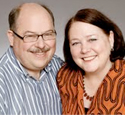
Jeffrey Beeson & Patricia Munro
Pushed by the aging of the workforce, businesses are scrambling to find consultants to help them restructure and find innovative ways to make the most of the assets of their older employees. However, a project conducted last year in six cities (Bilbao, Bologna, Bonn, London, Prague, and Strasbourg) demonstrated the surprising truth that businesses already have the answers. To discover them, they just need to tap into the collective wisdom of their own staff.
The European Voices for Active Ageing (EVAA) project was an initiative funded by the European Union’s Europe for Citizens program. The project was led by World Café Europe—a nonprofit organization that specializes in dialogues engaging as few as 50 and as many as 1,000 people. During these dialogues, everyone participates. The EVAA project was designed to give adults in later life a voice about issues that matter to them today. In each city a different topic was discussed. In Bologna, the topic was “Work after 50.”
Wisdom of the ages
Ninety adults participated in the Bologna dialogue. Of this group, 71 percent were white- and blue-collar workers between the ages of 50 and 70; 16 percent were white- and blue-collar workers younger than 50; and the remaining 13 percent were retired workers over the age of 70. The purpose of the Bologna dialogue was to explore what change is necessary in today’s workplace in order to unleash the talent and potential of an aging workforce.

The dialogue’s results were remarkable. In four hours, the participants pinpointed nine key issues: knowledge transfer, lifelong learning, new challenges for workers over 50, intergenerational issues, new work structures, an age-friendly organizational culture, the attitudes both of older and younger workers, ageism in the workplace, and opportunities for government legislation to promote workplaces free of age-bias.
The participants made specific suggestions of ways businesses should respond to each of these issues. For example, the participants concluded that businesses needed to encourage older workers to reconsider some of their own negative attitudes, such as “too old to learn,” “resistance to change,” and “unwillingness to share.” They also strongly advocated a gradual retirement process enriched by a cross-generational program of courses, coaching, and mentoring on retirement planning. Mandatory retirement would be abolished. In another inspired moment, they came up with seven ways in which employees over 50 could heighten their engagement in their work: for example, within companies as communicators of organizational knowledge and, in paid early retirement, as consultants or contributors of socially useful work. (For an overview of the Bologna dialogue, click here.)
Willingness to act
EVAA was conceived as a dialogue by older adults for older adults. In preparation, facilitators over the age of 50 were coached and mentored to lead the conversation. Bologna had two facilitators: a union worker and a university professor.
At the end of the session, the participants were asked to fill out an evaluation sheet. One question asked them to rate their level of personal motivation as a result of the dialogue. An overwhelming majority—89 percent—said they were motivated to continue their engagement with the issues involved in “Work after 50.” Of this group, 25 percent said they were “extremely motivated” to continue their engagement. (For detailed recommendations and evaluation results, click here.)
All of these results point to an interesting question: What if businesses were willing to engage their employees in a highly participatory way about issues that matter to them and to their company? What happened in Bologna suggests that they would find a fountain of wisdom waiting to be discovered. As a bonus, companies would also identify “extremely motivated” employees who are eager to become part of the solution.
Author
Jeffrey Beeson
Board Member, World Café Europe
Email: beeson@worldcafe-europe.net
Patricia Munro
Board Member, World Café Europe
Email: munro@worldcafe-europe.net

